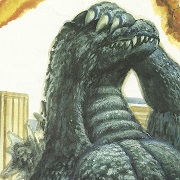|
Hunt11 posted:The biggest mistake that the Japanese made was not understanding why they were able to deliver decisive blows that knocked out Russia and the other colonial powers and why that would never work on the US. Every colonial power had their manufacturing base in and around Europe so one good victory would mean that it would take a significant amount of time for new ships to be created and sent over to Asia. The US though was able to produce ships right into the Pacific Ocean and even should they suffer a decisive defeat, the time required to rebuild the ships and get them back into the fight. It's not like the US naval dockyards were right next to the Philippines you know! The Pacific is hella big. Not having to worry about Germany as a potential or actual invader had a lot more to do with it.
|
|
|
|

|
| # ? May 19, 2024 11:52 |
|
Hunt11 posted:The biggest mistake that the Japanese made was not understanding why they were able to deliver decisive blows that knocked out Russia and the other colonial powers and why that would never work on the US. Every colonial power had their manufacturing base in and around Europe so one good victory would mean that it would take a significant amount of time for new ships to be created and sent over to Asia. The US though was able to produce ships right into the Pacific Ocean and even should they suffer a decisive defeat, the time required to rebuild the ships and get them back into the fight. I don't agree with this. The difference between Imperial Russia and the US was the difference in political situations. In that sense, Japan making the mistake of assuming the US would sue for peace is understandable because at the time, major conflicts with modern democracies was a fairly untested quantity. The idea that decadent, isolationist America, distracted by the European war, would fight to the bitter end in a conflict that posed no real existential threat to it - that is not obvious ahead of time. Rebuilding the US fleet during WWII did take a lot of time. The point was that they were willing to do it. Fangz fucked around with this message at 21:51 on Aug 9, 2018 |
|
|
|
Cythereal posted:Was Japan's leadership stupid? In my opinion, no. Within the framework Japan's leadership across the board had, Japan's military leadership was quite intelligent. They'd thought hard about the situation Japan was facing, and given their resource constraints were downright brilliant at preparing themselves to fight the way they planned - the Zero was a wonder in the early years, Japanese torpedoes were second to none, Japan's carrier capabilities were like nothing the world had seen, Japan made terrific use of surprise and pulled off some stunning wins, and they repeatedly demonstrated their mastery of infiltration tactics on land and vastly superior night fighting capabilities at sea. When it comes to how the Axis conducted their strategy, sometimes in walking around the building I do get why they fought like they did. They knew in any long conflict they were hosed, so they planned for short, really intense conflicts instead. They also fought without a net: they didn't have any backup plans if basic assumptions they made were wrong. And, they had a period - for the Japanese it was from Pearl Harbor to Midway, for the Germans it was from Poland till the invasion of the USSR - where everything rolled their way for the most part, and seemed to confirm the strategic leadership was correct. As Cyrano has pointed out before, this was as much a story of incompetence on their enemy's part as it is a story of competence on the part of the Axis, but you can see why people drew that conclusion. Even when it comes to air power in early WW2, the Germans went through a period where they would fight a nation, then bomb the poo poo out of the enemy's capital, which caused them to surrender. So even there, the strategic bombing thesis of "breaking the enemy's will to fight" seemed confirmed. The big flaw in this, obviously, that your planning shouldn't be made on a best case scenario
|
|
|
|
Nebakenezzer posted:They knew in any long conflict they were hosed, so they planned for short, really intense conflicts instead. Admiral Yamamoto (the guy that planned/led the Pearl Harbor raid) was not terribly optimistic about his chances: "In the first six to twelve months of a war with the United States and Great Britain I will run wild and win victory upon victory. But then, if the war continues after that, I have no expectation of success." It played out pretty much exactly like he expected, too bad he was more-or-less* assassinated in April of 1943, before he could say "I told you so" to his superiors. He was also really against the Yamato-class battleships, saying "The fiercest serpent may be overcome by a swarm of ants." I mean, he was the Naval Aviation Guy, so he thought that money would be better spent on more carriers, but ... he wasn't wrong. *killing people in war is one thing, POTUS saying "take out this particular person" and sending a squadron of fighters after him seems, at best, a little unsporting
|
|
|
|
Epicurius posted:I'll have to check. I think it's a combination. I follow your logic. It's easy enough after the fact, to say, "Oh, I never really believed it was a good idea.". But I think a lot of it came from private conversations and diary entries at the time. I am also reminded of Rommel, where after the war his loyal subordinates pushed the idea that "if only Hitler had listened to Rommel..." by cherry-picking his personal papers.
|
|
|
|
Chillbro Baggins posted:Admiral Yamamoto (the guy that planned/led the Pearl Harbor raid) was not terribly optimistic about his chances: "In the first six to twelve months of a war with the United States and Great Britain I will run wild and win victory upon victory. But then, if the war continues after that, I have no expectation of success." It played out pretty much exactly like he expected, too bad he was more-or-less* assassinated in April of 1943, before he could say "I told you so" to his superiors. That being said, he was also the one most convinced that the US was a beaten, demoralized power that would fold like a house of cards at Midway and was the guy who really, really wanted to invade Hawaii.
|
|
|
|
I kinda get the sense that the Axis Powers leadership wasn't going to stop and be "satisfied" with their gains until their military power was pushed to the limit anyways. Like even if Nazi Germany had managed to knock back Russia or if Japan had managed to spook the US out of the Pacific, they'd convince themselves that the time was right for some new impossible enterprise.
|
|
|
|
Hunt11 posted:The biggest mistake that the Japanese made was not understanding why they were able to deliver decisive blows that knocked out Russia and the other colonial powers and why that would never work on the US. Every colonial power had their manufacturing base in and around Europe so one good victory would mean that it would take a significant amount of time for new ships to be created and sent over to Asia. The US though was able to produce ships right into the Pacific Ocean and even should they suffer a decisive defeat, the time required to rebuild the ships and get them back into the fight. That isnít the reason. Building a ship is the long duration, not sending it from the Atlantic to The Pacific. A vast majority of US combat ships were built on the East Coast. The real reason in my opinion was that the pacific was a strategically vital region to the US and concessions directly threatened the security of the mainland USA. The Dutch losing the East Indies would have a negative effect on the Dutch economy and world position but would not change the security of the mainland Netherlands one iota. Surrendering control of pacific islands to Japan would drastically change the American security situation. Plus, you have the will to fight engendered by an attack on Hawaii, which while not quite a state was much more a part of the US to the American psyche than the colonial possessions in the southwest pacific and the Philippines, and you also have the economic power to see the goddam thing through.
|
|
|
|
Cythereal posted:That being said, he was also the one most convinced that the US was a beaten, demoralized power that would fold like a house of cards at Midway and was the guy who really, really wanted to invade Hawaii. I think he talked himself in to the former because he knew deep down inside that Midway was a dumb op. As for the latter, what else are you going to do? Seriously, invading hawaii is dumb - but whatís the other palatable option with a chance of success for Japan in early 42 after all the initial gains are made?
|
|
|
|
KYOON GRIFFEY JR posted:I think he talked himself in to the former because he knew deep down inside that Midway was a dumb op. As for the latter, what else are you going to do? Seriously, invading hawaii is dumb - but whatís the other palatable option with a chance of success for Japan in early 42 after all the initial gains are made? Invading Hawaii in early 42 had a chance of success?
|
|
|
|
KYOON GRIFFEY JR posted:I think he talked himself in to the former because he knew deep down inside that Midway was a dumb op. As for the latter, what else are you going to do? Seriously, invading hawaii is dumb - but whatís the other palatable option with a chance of success for Japan in early 42 after all the initial gains are made? Go defensive, consolidate your gains and declare total war on the Imperial Japanese Army.
|
|
|
|
Polikarpov posted:Go defensive, consolidate your gains and declare total war on the Imperial Japanese Army.
|
|
|
|
KYOON GRIFFEY JR posted:I think he talked himself in to the former because he knew deep down inside that Midway was a dumb op. As for the latter, what else are you going to do? Seriously, invading hawaii is dumb - but whatís the other palatable option with a chance of success for Japan in early 42 after all the initial gains are made? The IJN and IJA had planned to advance into the island chains separating ANZAC from North America, severing Australia and New Zealand from the US, until Yamamoto pulled his "Hawaii or I quit" stunt. Other options Japan had considered were going defensive (deemed womanly and improper of Japanese warriors, no seriously), launching a full scale invasion of India and Sri Lanka (rejected by the Army as unfeasible), or invading Australia itself (again rejected by the Army).
|
|
|
|
bewbies posted:The Japanese grand strategy in WWII was not a bad one considering their operational environment and political/strategic objectives. I don't really understand why there's this overarching assumption they were stupid. They were stupid in pursuing those objectives.
|
|
|
|
Chillbro Baggins posted:Admiral Yamamoto (the guy that planned/led the Pearl Harbor raid) was not terribly optimistic about his chances: "In the first six to twelve months of a war with the United States and Great Britain I will run wild and win victory upon victory. But then, if the war continues after that, I have no expectation of success." It played out pretty much exactly like he expected, too bad he was more-or-less* assassinated in April of 1943, before he could say "I told you so" to his superiors. It was an assassination, I don't know of any serious modern work arguing it was anything else.
|
|
|
|
Phanatic posted:Invading Hawaii in early 42 had a chance of success? 1% is still a chance.
|
|
|
|
Corsair Pool Boy posted:IMO it's more that they made assumptions and then built their entire plan and war machine around those assumptions with virtually no thought or contingencies for things beyond 'I sure do hope this works!' and were then unable to adjust to the way things were by '43 and kept trying to double down on their initial plan. I don't know this for sure, but I am willing to bet that they did consider contingencies...but did not have the resources to seriously implement any of them. A lot of futures planning comes down to resource allocation, and if they put all their cards into "decisive battle", that more or less concedes that they're going to lose any other course of action. If they sucked resources out of "decisive battle" and put it into "defending against a long grindy island hopping campaign", that detracts from the "decisive battle" capabilities, and thus works against what they thought was going to happen. In other words, to quote just about every information age general: if you prioritize everything, you prioritize nothing.
|
|
|
|
bewbies posted:I don't know this for sure, but I am willing to bet that they did consider contingencies...but did not have the resources to seriously implement any of them. A lot of futures planning comes down to resource allocation, and if they put all their cards into "decisive battle", that more or less concedes that they're going to lose any other course of action. If they sucked resources out of "decisive battle" and put it into "defending against a long grindy island hopping campaign", that detracts from the "decisive battle" capabilities, and thus works against what they thought was going to happen. And the problem with a decisive battle is assuming that it's... decisive. America had a vastly greater ability to lose ships, men, and territory and keep on fighting than Japan did, and America was willing to stomach those losses. The United States could have easily afforded to lose Midway. Japan could not - the United States had committed military resources that were, while significant, also ultimately expendable. Japan's carriers were not expendable resources. There just wasn't going to be a decisive battle to change the course of the war like Japan hoped.
|
|
|
|
Cythereal posted:And the problem with a decisive battle is assuming that it's... decisive. America had a vastly greater ability to lose ships, men, and territory and keep on fighting than Japan did, and America was willing to stomach those losses. The United States could have easily afforded to lose Midway. Japan could not - the United States had committed military resources that were, while significant, also ultimately expendable. Japan's carriers were not expendable resources. There just wasn't going to be a decisive battle to change the course of the war like Japan hoped. I don't think anyone is arguing that the Japanese were right ex post facto, as they obviously were not. What I'm arguing at least, is that based on what information was available to them in the mid 1930s, planning for a decisive battle that would keep the US out of the western Pacific was a reasonable and possibly even best course of action considering what they wanted to do politically and strategically. That being said I do not really know exactly what information was available to them outside of generalities, so perhaps there was actually overwhelming evidence that the decisive battle approach was foolish and they just ignored it. I'm betting that there was not, though.
|
|
|
|
Chillbro Baggins posted:
Assassination of a military officer in wartime is completely legit.
|
|
|
|
The key, I think, is that the Japanese war plan focused on attacking military positions on Hawaii (a mere territory at the time) and conquering the Philippines (not only was this only a US territory, the US was in the active process of leaving). From the Japanese point of view, taking away a territory that the US didn't want in the first place and hitting military positions on a not-particularly-valuable bit of real estate wouldn't be enough of a blow to US pride to override the loss of face caused by the military blows. Meanwhile, the economic cost (outside of the lost ships) would be fairly small, because the only territory permanently lost was one that the US openly had no intention of keeping. This was fundamentally flawed thinking, but I can see how an imperialist power could make these assumptions.
|
|
|
|
|
Corsair Pool Boy posted:It was an assassination, I don't know of any serious modern work arguing it was anything else. Not that there is anything wrong with assassination.
|
|
|
|
Still a solid "gently caress you!" though.
|
|
|
|
It's sort of a corollary to the Axis WWII mystique, where their best leaders were brilliant and irreplaceable if lost, like Yamamoto being killed or Manstein being sacked by Hitler. But really, it didn't matter.
|
|
|
|
Phanatic posted:Invading Hawaii in early 42 had a chance of success? It had no chance unless they did it in Dec 41 and even then it had a bout a 0.00001% chance of some form of "successes" that involved a bunch of IJA troops starving to death somewhere in the Hawaiian Islands (so definitely a W for the IJN), but it was the Logical Next Step and i mean Imperial Japan was "gently caress it bet it all on black" as a strategy so if you look at it that way it makes sense. consolidation was probably the smart option but it isn't possible for cultural reasons I don't think invading Fiji, etc, was really all that viable either. Japan early 42 is in a position where literally any offensive option is bad and a waste of resources but they need to win Right loving Now and they're on a great streak of victories and so therefore not continuing the offensive Somewhere Viable and Useful is not possible. you can argue, fairly accurately, that putting oneself in this position is bad, but i don't really know what the Good Alternative was at this point. The HMS Good Alternative sailed in '34
|
|
|
|
drat now I want to rewatch The Emperor's Naked Army Marches On again.
|
|
|
|
|
HEY GUNS posted:alternate history novel: the ija and the ijn stop pretending and finally declare war on each other instead of the us This would be good but who should I root for The IJN, not actually committing genocide? I'm nearly done with my Amerika bomber posts and am convinced the alt history novel in it is the Japanese revealing the I-400 subs to the Germans, and the Germans going "wow, we're wrong about racism clearly" and then start pitching them on using them to launch V1s and V2s at America
|
|
|
|
HannibalBarca posted:It's sort of a corollary to the Axis WWII mystique, where their best leaders were brilliant and irreplaceable if lost, like Yamamoto being killed or Manstein being sacked by Hitler. But really, it didn't matter. Also there's the (possibly apocryphal) attempt to kidnap/assassinate Eisenhower in 1944, and the definitely apocryphal attempt to do that to Roosevelt/Churchill/Stalin in Tehran.
|
|
|
|
HannibalBarca posted:It's sort of a corollary to the Axis WWII mystique, where their best leaders were brilliant and irreplaceable if lost, like Yamamoto being killed or Manstein being sacked by Hitler. But really, it didn't matter. Thread favorite Shattered Sword had some fun with this, looking at "What if Yamamoto had died/been sacked prior to Midway, would Midway still have happened?" and concluding with "Yes, something very much like Midway would almost certainly have still happened and it probably would have unfolded in about the same way assuming similar performances in the battle itself."
|
|
|
|
Cythereal posted:The fault in Japan's leadership, in my opinion, was failing to anticipate the future. They didn't understand that they were up against a very different opponent from their last big war with a vastly different political calculus and military capability, and that lead to Japan failing to anticipate what the Pacific War would be like. Japan fought brilliantly in many respects, their plans actually pretty much worked against the colonial European powers, but even when Japan probably should have been realizing that war with America was an entirely different beast (Coral Sea would be my pick), they persisted in seeing what they expected to see. Keep in mind that they thought that they had sunk two fleet carriers in exchange for the loss of a single light carrier (and two fleet carrier effectively out of service for a while), so Coral Sea was a 'win' for the Japanese carrier fleet.
|
|
|
|

|
|
|
|
Taerkar posted:Keep in mind that they thought that they had sunk two fleet carriers in exchange for the loss of a single light carrier (and two fleet carrier effectively out of service for a while), so Coral Sea was a 'win' for the Japanese carrier fleet. The bigger point is that the Americans had carriers at Coral Sea to be sunk, employing them aggressively and far from home. Not the way a demoralized and beaten adversary tends to employ such important assets, and as such should have been an important clue that Japan was reading American intentions and psychology wrong.
|
|
|
|
Cythereal posted:The bigger point is that the Americans had carriers at Coral Sea to be sunk, employing them aggressively and far from home. Not the way a demoralized and beaten adversary tends to employ such important assets, and as such should have been an important clue that Japan was reading American intentions and psychology wrong. Fascist governments are generally incapable of objectively assessing their enemies. 
|
|
|
|
...when did Something Awful get that smiley? And is it meant to be sincere or sarcastic?
|
|
|
|
Davin Valkri posted:...when did Something Awful get that smiley? And is it meant to be sincere or sarcastic? It comes from the D&D forum, of course. A lot of the threads in that forum get around to discussing the hypocrisy and cognitive dissonance displayed by certain political groups and media personalities, which used to inevitably lead to someone bringing up Eco, leading to that quote, leading to a three to ten page quagmire about the definition of fascism and whether a given political group are Nazis or not. That smiley was created to short-circuit that particular routine by going "Yes yes we all know how this goes shut up and let's skip the derail."
|
|
|
|
Heres a question for the thread: Does Japan try to seize Malaysia and the East Indies if Britain and the Netherlands aren't fighting a European war? afaik It wouldn't change Japanese timetable very much, so they'd start running low on oil around 1941 just the same.
Slim Jim Pickens fucked around with this message at 08:09 on Aug 10, 2018 |
|
|
|
Given how the Japanese treated other places they invaded if they took hawaii there likely wouldn't be many Americans left, so we could've seen the interesting effect of dropping an atomic bomb on a volcano
|
|
|
|
I dunno why exactly tank destroyer chat got banned, but "Could Imperial Japan have won WW2?" repeats get p. boring  We were/are having a discussion on why fantasy nerds hate crossbows and blackpower weapons in elfgames, so I wouldn't mind people reiterating the strengths and weaknesses of bows, crossbows and probably matchlocks (or whatever came before them) from the time when they shared a battlefield (late Medieval?). Also, what's so special about composite bows making them better than... whatever previous bows existed?
|
|
|
|
AFAIK the biggest advantage of composite bows is that you can make them smaller for the same power, allowing you to have bows powerful enough to be militarily-relevant but short enough to fire from horseback. They're also a bit more efficient than a simple bow in transforming the stored energy into kinetic energy. The disadvantages is that they're difficult to make, take a very long time to make, and fall apart if they get wet.
|
|
|
|

|
| # ? May 19, 2024 11:52 |
|
The Lone Badger posted:AFAIK the biggest advantage of composite bows is that you can make them smaller for the same power, allowing you to have bows powerful enough to be militarily-relevant but short enough to fire from horseback. They're also a bit more efficient than a simple bow in transforming the stored energy into kinetic energy. Don't they also require less strength to draw?
|
|
|







 Bad Angus! Bad!
Bad Angus! Bad!













 Yes, it's like a lava lamp.
Yes, it's like a lava lamp.









